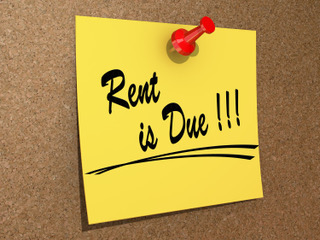
** Updated on 4/6/20 to include information from the The Supreme Court of Texas’ Ninth Emergency Order
** Updated on 5/7/20 to include information from the The Supreme Court of Texas’ Tenth through Fourteenth Emergency Order
In no other time in our American history have we experienced so much job loss and loss of income in such a short period of time. When the month of March began, we all knew there was a virus overseas known as the novel Coronavirus, or COVID-19. We knew the virus had made its way to the United States, but we could have never anticipated the devastating economic impact that it would create.
Many families have experienced job loss, reduced income, or a family member that has fallen ill with the virus. Because of this, the Texas Supreme Court issued an emergency order that was further extended by the Texas Supreme Court Twelfth Emergency Order suspending residential eviction proceedings through May18, 2020, unless there is a threat of physical harm or criminal activity.
Tarrant county is following the orders given by Governor Gregg Abbott who gave the following statement after the Texas Supreme Court issued an emergency order suspending residential eviction proceedings through April 19, 2020:
“This decision by the Texas Supreme Court offers a lifeline to many Texans who are beginning to feel the economic impact of COVID-19. Temporarily suspending residential eviction proceedings will provide Texans whose personal income has been affected by the spread of this virus with greater flexibility to meet their housing needs and provide for their families. I thank the Texas Supreme Court for its swift action on this matter.”
The Supreme Court of Texas’ Twelfth Emergency Order extends this suspension through May 18, 2020, and extends the execution of writs of possession to May 25, 2020.
Dallas County Judge Clay Jenkins issued a Stay Home Stay Safe amended order on March 29, 2020, advising the Dallas County Justices of the Peace to suspend eviction hearings and writs of possession for at least the next 60 days to prevent renters from being displaced. This suspends residential eviction proceedings in Dallas County through May 28, 2020.
Further, to supplement state and local orders, the United States Federal Government passed what is now known as the CARES Act. Section 4024 of the CARES Act provides a temporary moratorium on eviction filings as well as other protections for tenants in certain rental properties with federal assistance or federally related financing. These protections are designed to alleviate the economic and public health consequences of tenant displacement during the COVID-19 outbreak. The eviction moratorium is in effect for a 120-day period beginning on March 27, 2020, the date the CARES Act was enacted. This moratorium applies ONLY to evictions related to NON-PAYMENT OF RENT and other charges. Section 4024’s protections, however, do not absolve tenants of their legal responsibilities to pay rent. Tenants who do not pay rent during the eviction grace period may still face financial and legal liabilities, including eviction, after the moratorium ends.
What does this mean for you, the renter?
Although money is tight, the rent is still due. A renter who misses a payment, or pays rent late is still subject to the terms of the residential lease contract and the property code. In other words, the renter will likely still incur late fees and penalties, and the landlord may still exercise his right to refuse to accept rent if paid late. Also, a landlord may still issue a notice to vacate and file an eviction proceeding with the court. However, the courts will not schedule an eviction trial until after May 18, 2020 under the Texas Supreme Court’s Ninth Order, or May 28, 2020 under the Dallas County Judge Clay Jenkins Stay Home Stay Safe Amended Order. Further, if an eviction has been granted, the court may issue a writ of possession to allow the Landlord take possession of the property, but the writ will not be executed until after May 25, 2020 (or May 28, 2020 in Dallas County).
This is good news for renters who have lost their source of income and need time to find the money to pay the rent, or time to find a new place to live. Unfortunately, there is still a lot of uncertainty surrounding the COVID-19 pandemic, the county stay-at-home orders, and the economy. These orders have been extended or expanded upon, and it is unclear if the Governor, Supreme Court of Texas, or County Officials will continue to do so.
Your best bet is to keep in contact with your landlord and let them know your situation and your intention to pay the rent as soon as possible. They will likely be willing to work with you.
